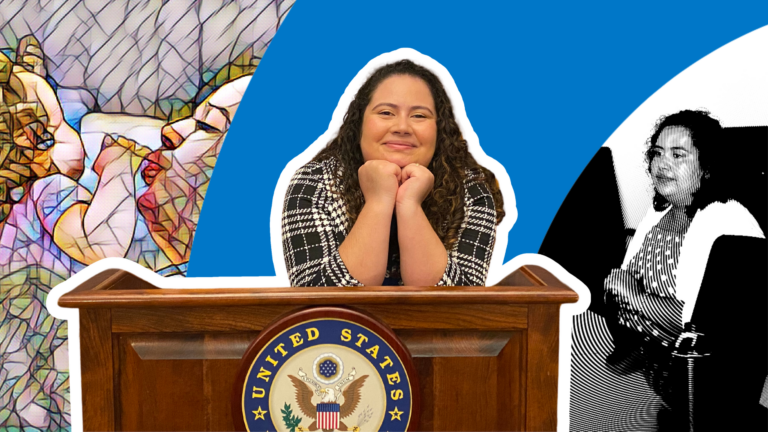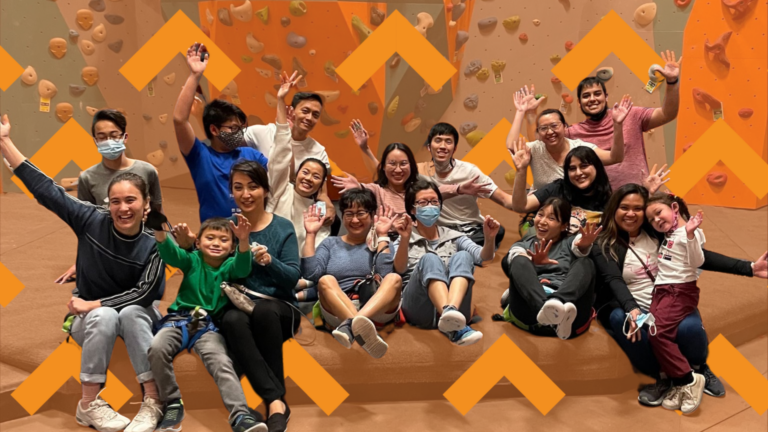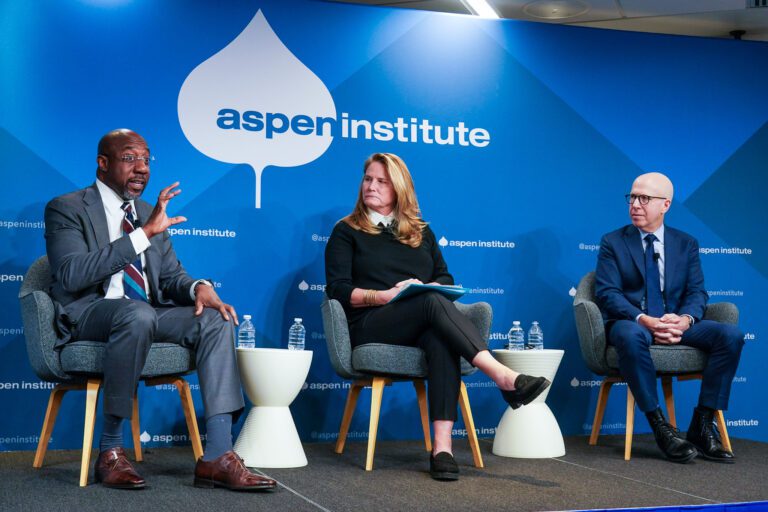I Am More Than a Number
This blog is adapted from Rynn Bell’s remarks on January 25 at the Aspen Forum on Children and Families, which brought together policymakers, parents, practitioners, researchers, and philanthropists to lift up a set of solid ideas for investing in the economic stability and educational success of children and families.
I come from a multi-generational household. I was raised by my grandmother, who also raised her kids, her kids' kids, her kids' kids' kids, and their kids. We all grew up in a poverty-stricken environment. We were lucky to get one meal a day. Every day was a struggle. When my grandmother died, I had no choice but to go and live with my mother, who was an alcoholic and addicted to crack-cocaine. I no longer had a strong person to guide me or teach me how to be successful. As a result, I started looking for love in all the wrong places.
When I was 14, I had my first child. At the time, my ACE score (Adverse Childhood Experiences) was at a 7. By the time I was 30 my ACE score was 9. I didn’t want my son to experience the same things I had. It was so important for me to become resilient, and move forward so I could build a better life for my family. I had no money or support, so I turned to the system for help.
The first time I walked into the human services office to apply for food stamps was terrifying. The room was full of screaming kids and struggling parents. I took a number and sat down next to a single mom with six kids. She looked like she had been there for hours. When I looked up at the monitor, it said they were serving number 42. I was number 127. I sat for 2 hours waiting to be called. When it was my turn I walked up to the desk feeling defeated and shameful. I politely told the lady I was here to apply for food stamps. She dropped a packet in front of me and told me to go fill it out. So I sat back down, filled out the packet, and then waited another hour to talk to the lady again. When I gave her my packet, she handed it back to me saying I needed to come back, I didn’t have any of the information they needed. After 4 hours, I left feeling hopeless and alone.
When I returned to human services a few days later I handed all the necessary forms to the technician. She flips through all my papers, and said, “Okay, we’ll give you a call.” She didn’t look at me once the entire time I was sitting there. I left the human services office with no services, no food stamps, no smile, and no hope. I had no idea where to go from there.
After that day, I became a number. At human services I was number 127, and then I got my food stamps, and I became number B1X6209. I never had a name, I was always a number from that point on. I was a number at social services, I was a number at housing, and I was a number at college. Everything I did, I had a number, and I just don't want to be a number anymore.
My experience made me want to become an advocate for parents. It is so important for us to use our voices in order to support our families. At the same time, policies and systems need to work to support us.
When families go to social services for help, there should be someone there looking them in the eyes, treating them with respect, and listening to what they have to say. If we want people to be self-sufficient, we have to listen to them to know what they need, and stop telling them what you think they need. Policymakers need to remember to have parents at the forefront, and get parents involved and engaged. When you start treating people with dignity and respect, they'll be able to move forward and feel like they're more of a person and not just a number.
Related Posts



